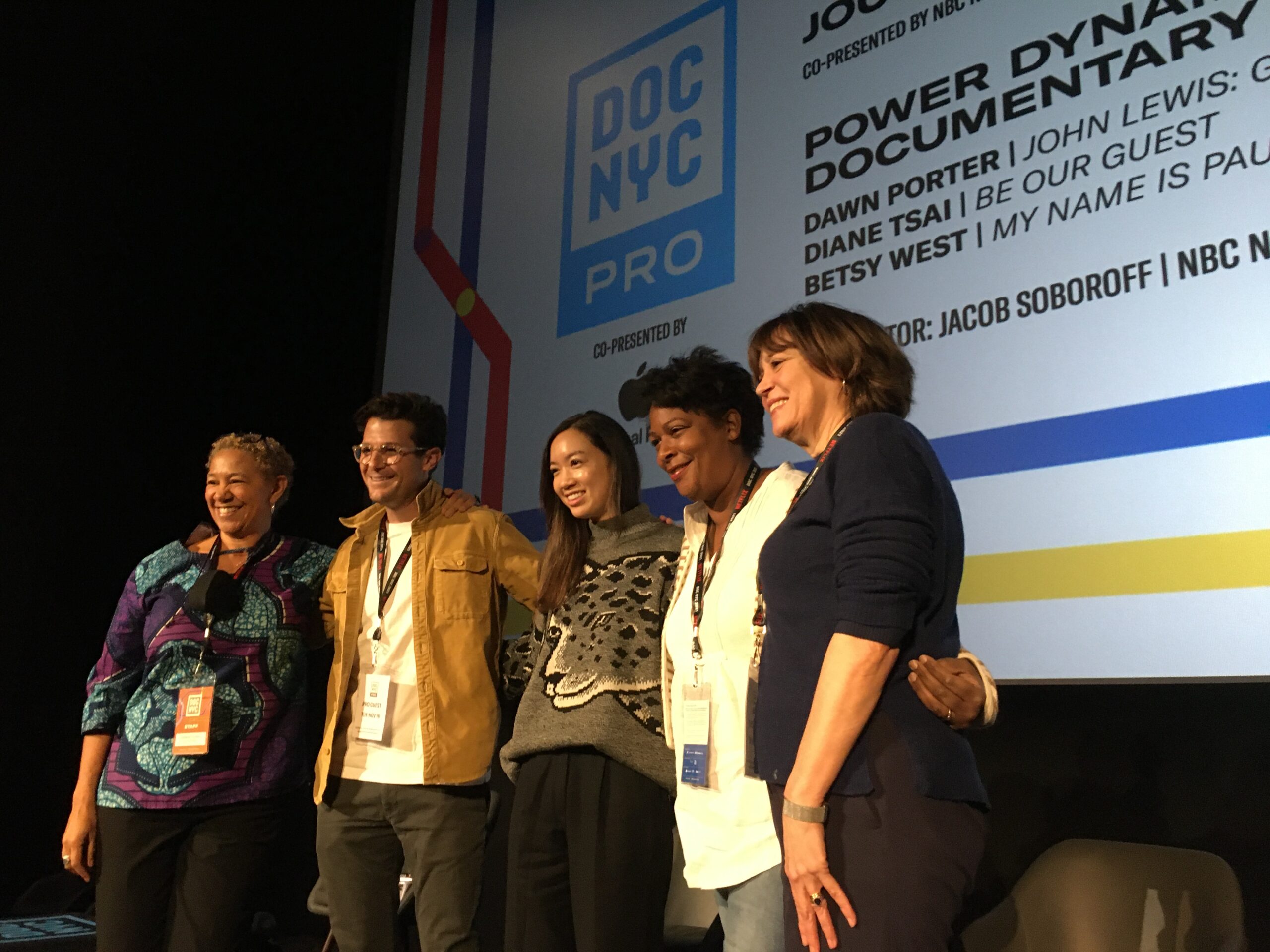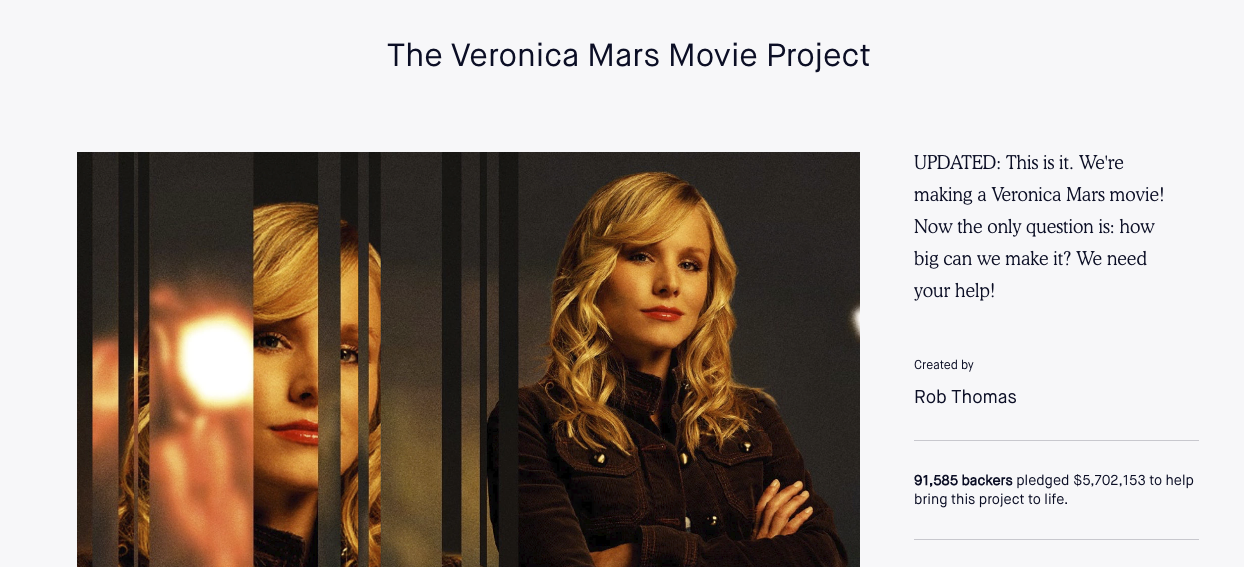The third episode of my passion project, the podcast “Creative Distribution 101” is up ! It features interviews with experts and filmmakers who have used creative, alternative and non traditional ways to get their film out there. Whether you’re interested in the future of filmmaking, or just want to learn some distribution tips, this is for you !

In this episode I interview Orly Ravid (find her online here) who founded The Film Collaborative in response to “a dominant and overarching structure that favors middlemen, not filmmakers”. Previously Orly was a Programming Associate for documentaries at Sundance and a programming consultant at Palm Springs International. Other past affiliations include Senator Entertainment (VP Acquisitions and Distribution); Wolfe Releasing (Director: Acquisitions, Theatrical, Non-Theatrical/Festivals, Business Affairs and Digital Distribution); she also regularly contributed to indieWIRE, Ted Hope’s blog “Truly Free Film,” and Sundance’s Artists Services, for which she was an advisor. Orly has also spoken about distribution at film festivals and universities, including Sundance, Cannes, SXSW, Los Angeles Film Festival, AFI Fest, Dok Leipzig, Cairo Cinema Days, India’s Film Bazaar, UCLA, and USC, to name a few.
Orly launched the organization’s book Selling Your Film Without Selling Your Soul, and more recently, How Not to Sign a Film Contract, as well as TFC’s Fiscal Sponsorship and the new Collaborative Releasing initiative.
Orly is a master of creative distribution, so check out the episode below and let me know your thoughts in the comments or on Twitter (@norapoggi) !
Or stream in browser here:
Show notes:
- Orly focuses on removing the middlemen so more money goes back to the filmmakers.
- TFC Offers free education resources (Distripedia, Guides, blog), paid consultation for members and custom distribution. Will educate anyone but doesn’t distribute everyone.
- Not every film is a festival film. You have to know how to see past your immediate vision, most people won’t go to Sundance and even if you do it might not work out the way you want. Think outside the box. Having distribution potential means some awareness and niche potential to market to.
- For narratives, if you have an unknown cast, you need niche appeal or themes that equate to marketing potential. Example of a fiction film that worked, “Light of the Moon”: had some cast and a nice festival premiere, but also an issue and themes. If it’s very funny, it’s also a marketing hook. You need a hook, otherwise how many people are going to go see a film if it’s just a poor version of a studio film ? You need a combination of factors for success.
- B-list cast can be very deceiving even if on a successful show, that doesn’t translate into audiences. If you don’t have A-list cast or a big festival premiere, be creative with niche marketing. The premiere creates buzz and gives you press. You need a plan B if it doesn’t happen. Really think of the distribution very early on and look at what similar films did and what worked for them.
- Some of the films that worked well: “Mosquita Y Mari”, a lesbian Latina film, “Hooligan Sparrow”, “Invisible War” and “The Hunting Ground” on sexual assault issues. Those issue-based films and with niche appeal will do well in every category, they also had top festival premieres. “Landfill harmonic” is TFC’s most successful film in festivals, made about 200K in festival income gross alone. It was a once in a blue moon movie that got covered in 60-min. It usually doesn’t happen like that.
- Stuff you can do even without a big festival run: the film “Under our skin” about lyme disease, the director was making 25K a month just selling DVDs, when DVDs were still a big thing, but DVDs and educational licenses still sell very well.
- Niches and their strengths vary. For example LGBT content is more competitive now, because thankfully there is more content. In Europe there’s a lot more public funding, but in the US it’s about investors, equity, donations, grants, etc.
- The Basics: 1) Have a great publicity team 2) Have great marketing assets (trailer, stills, etc). You need new content to build an online community, and custom content for each platform. Include all of this in your budget, it’s just as important.
- Key ingredient: get everyone to sign up at every screening so you can let them know when the film is released and build a mailing list. Get organizations on board, corporations, NGOs, schools, early on to be a screening venue and a place of outreach and marketing.
- Basically you need a plan before the film premieres: it takes time, work, and care. Assess where your film is and what worked or didn’t for similar films. Coordinate timing if you were funded by a broadcaster, adjust to SVOD restrictions or know when you have to turn that down. Corporate sponsorships take a very long time, so get help. Hire the right person if you don’t have the relationships, it’s rare that it’s worth the time and energy.
- Windows matter: have the longest possible window when the licenses are at a high price, but also release the film online before people completely forget about it. It’s a balance. If you are offered a lot of money from a streaming platform, weigh if it’s worth it to forego other windows or not, and what they can bring to the table. Each film is different. Streaming is king and transactional (iTunes ) diminished but still works for some films. Ad-supported VOD will be key, like original TV, as people won’t to pay for multiple subscription services. Community screenings and educational are still generating plenty of revenue for the right type of films.
- Digital distribution advice: Don’t assume that just putting it out there will be enough. If no one knows about it, if the platform is not promoting, no one will buy it, films don’t sell themselves. Design key art that sells on those platforms. Some people don’t want to own a film if they won’t replay it over and over – renting or streaming with ads or a subscription service can be enough for most content. Do not give exclusive rights to anyone when you don’t know what marketing they are doing or if you don’t know what other deal you could be getting from another platform.
- Build festival relationships with programmers, and other gatekeepers and entities that have reach. The film festivals’ appeal is on the rise, as they are the ultimate curators within a sea of content.





